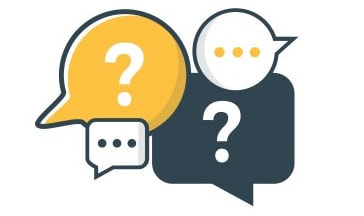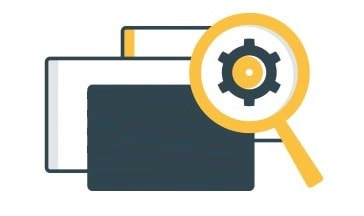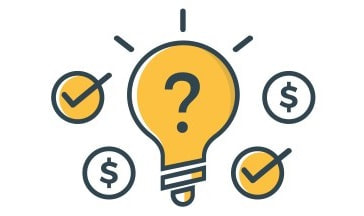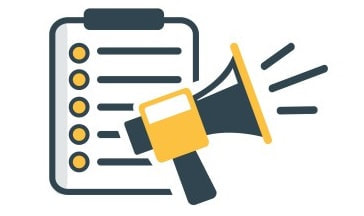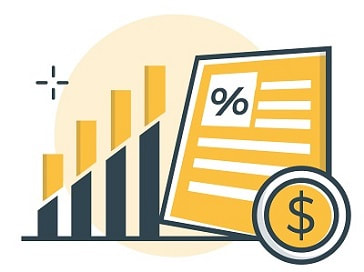How do Credit Cards Work? - The Definitive New Zealand Guide
Our guide takes you through the basics of a credit card, explaining low fee, low interest, balance transfers, cashback and rewards, helping you make the right decision.
Updated 9 October 2023
With 100+ different credit cards available, it’s perfectly reasonable to be confused about which one suits your spending habits, or if you need a credit card at all.
This guide takes you through the basics of a credit card, explaining low fee, low interest, balance transfers, cashback cards and rewards to help you pick the best card and avoid the many undesirable cards lurking around.
In this guide, we cover:
MoneyHub Founder Christopher Walsh explains how credit cards work in the video below:
With 100+ different credit cards available, it’s perfectly reasonable to be confused about which one suits your spending habits, or if you need a credit card at all.
This guide takes you through the basics of a credit card, explaining low fee, low interest, balance transfers, cashback cards and rewards to help you pick the best card and avoid the many undesirable cards lurking around.
In this guide, we cover:
- What is a credit card?
- Who can get a credit card?
- How do balance transfer credit cards work?
- How do “0% interest rate” credit cards work?
- How do award credit cards work?
- How do cashback credit cards work?
- The 12 Sacred Rules of Credit Cards
MoneyHub Founder Christopher Walsh explains how credit cards work in the video below:
MoneyHub Founder Christopher Walsh shares his views about credit cards:Banks (arguably) offer credit cards aggressively to their customers, and credit card debt is expensive. Per interest rates published by the Reserve Bank, the average is around 18% p.a. which makes it a costly debt. With over $3 billion outstanding every month, New Zealanders spend approximately $500 million a year on just servicing the interest. Repaying credit card balances can last for years.
I receive emails every week from everyday New Zealanders who are in a credit card debt trap. It's a terrible situation to be in, and I urge anyone paying interest on a credit card to pay down and/or cancel their credit card. Credit cards can mean long-term debt and a lot of hassle - please be careful before deciding to get one. |
Christopher Walsh
MoneyHub Founder |
Credit Card Must-Know Facts:
What is a Credit Card?A credit card is a payment card that lets you spend by borrowing from the card supplier, who then sends you a bill at the end of every month.
All credit cards have a “credit limit” – this is the maximum amount you can borrow. Your credit limit depends on your income, credit score and general financial health. Not everyone who applies for a credit card is given one – many factors beyond your income are taken into consideration. If you spend with a credit card, you will be charged interest. However, if you pay back what you borrowed to spend by the due date, the interest is zero. Interest rates are usually between 15% and 25%. |
Who can get a Credit Card?Anyone over 18 years of age can apply for a credit card. Usually, students will receive a credit limit of $500-$1,000, which reflects the low or zero income students have. Working adults will have greater choices as to credit limits and benefits. You can apply for more than one credit card; your chance of success depends on your credit history and financial standing.
|
What is a “Balance Transfer” credit card, and how does it work?To be eligible for a balance transfer credit card, you need to have an existing credit card with money owing. A balance transfer credit card is a new credit card that allows for an existing card’s balance to be transferred to it. The purpose of the balance transfer credit card is that it offers a low interest rate (or 0% in some cases) so you can repay it with much less interest cost that your existing credit card. Balance transfer credit cards are suitable for people having some difficulty in repaying their credit card every month. By paying low or no interest, the total debt can be paid off faster.
|
How do “0% interest rate” credit cards work?0% interest is also known as 'interest free'. You can make purchases on the card and pay no interest for a set period of time (i.e. until the balance is due). As is the case in New Zealand, GEM Visa and Q Mastercard both offer extended 0% periods beyond the standard 45-55 interest-free days offered by traditional credit cards.
0% interest offers are advertised to entice people to sign up and incur debt. But they do have their place - if you want to make a large purchase and pay for it over a set period, such as six months, they can make the purchase much cheaper than a short-term loan etc. But only if it's full repaid in full at the end of the interest-free period. If you don’t do this, the remaining debt becomes expensive. |
How do airline award credit cards work?Airline award credit cards earn you points towards a flight every time you spend on the card. The most popular airline credit card partner is Air New Zealand and its Airpoints Dollars program. The cards usually have annual fees (but some don’t) and rely on big spends to earn enough points for a free flight. As with any credit card, you need to pay them off in full every month. If you don't, the interest charges will outweigh the value of any airline award points.
|
How do cashback credit cards work?Cashback credit cards pay you to spend on them. While it’s not a large amount, you can expect 1% back on your annual spend. This means a $100 credit on your account if you’ve spent $10,000. As with any credit card, you need to pay the full balance of a rewards card every month. Otherwise, the interest charges will outweigh the value of any cashback reward.
|
The 12 Sacred Rules of Credit Cards:
Choose cards like a winnerLow-interest credit cards are perfect if you sometimes can’t pay them off, or look for generous rewards and flight benefits if you always pay your credit card on time.
|

